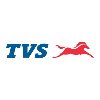


Premium Employer
i
This company page is being actively managed by
Haleon Team. If you also belong to the team, you
can get access from
here
Haleon
192 Haleon Jobs

Scrum Master
Haleon
posted 5d ago
Job Role Insights
Flexible timing
Key skills for the job
Job Description
About the role
The Scrum Master in this role is responsible for supporting both Tribe-level and two individual Agile teams, with a primary focus on ensuring the effective implementation of Agile practices and continuous improvement. This role involves facilitating various Scrum events for the teams, such as sprint planning, daily stand-ups, sprint reviews, and retrospectives. The Scrum Master also collaborates with the Enterprise Scrum Master to implement Tribe-level ceremonies and capabilities. They guide the teams in adhering to Agile principles, optimizing processes for efficiency, and removing impediments to progress. Additionally, they play a crucial role in fostering a culture of continuous learning, assist in managing the product backlog, monitor team progress, and coach team members in Agile practices. Ultimately, this Scrum Master is accountable for driving key metrics related to velocity and predictability for both the Tribe and the two teams while reporting to Tribe Leads and Product Directors/Managers within the teams.
Key responsibilities
Facilitate Scrum Events - Scrum Master is responsible for facilitating various Scrum events, including sprint planning, daily stand-ups, sprint reviews, and retrospectives for two Agile teams. They ensure that these events run smoothly and that the teams follow Scrum practices effectively.
Support Agile Practices - The Scrum Master supports the teams in adhering to Agile principles and Scrum practices. They help the teams optimize their processes and workflows to maximize efficiency, encouraging a culture of continuous improvement.
Remove Impediments - Identifying and removing impediments that hinder the progress of both teams is a crucial role for the Scrum Master. They collaborate with stakeholders to address challenges promptly, ensuring that the teams can work effectively.
Backlog Management - The Scrum Master assists Product Owners in refining and maintaining the product backlog. They ensure that backlog items are well-defined, prioritized, and actionable, which is essential for efficient sprint planning and execution.
Monitoring and Coaching - Monitoring the teams progress and velocity and using data to identify trends and areas for improvement is another responsibility. The Scrum Master also coaches team members on Agile practices, self-organization, and cross-functionality, helping them grow and develop their skills.
Accountability and Reporting - The Scrum Master is accountable for driving metrics related to velocity and predictability for a Tribe and two teams. They report to Tribe Leads and Product Directors/Product Managers within the teams, providing transparency and accountability for the teams performance.
Qualifications and skills Essential
With Minimum 7+ yrs experience in Agile and Scrum Practices: A deep understanding of Agile principles and Scrum framework is essential. The Scrum Master must be well-versed in Scrum events, roles, and artifacts, as well as Agile methodologies, to ensure the teams follow best practices and continuously improve their processes.
Industry Knowledge: Understanding the specific challenges, trends, and nuances of the Healthcare / CPG industry in which the teams operate allows the Scrum Master to provide more context and guidance, aligning Agile practices with industry-specific needs.
Data Analysis and Metrics: The Scrum Master should have proficiency in data analysis and metrics. They need to monitor team progress, track velocity, and identify trends in team performance. Understanding how to interpret and leverage data is essential for making informed decisions and driving improvements.
Change Management: An understanding of change management principles is valuable. As the Scrum Master guides the teams in adopting Agile practices and continuous improvement, they may encounter resistance to change. Knowing how to navigate and address these challenges is essential for successful Agile transformation.
Preferred
Stakeholder Management: Knowledge of stakeholder needs and expectations is vital. The Scrum Master should understand the perspectives and goals of Tribe Leads, Product Directors, and Product Managers within the teams. Effective communication and collaboration with these stakeholders are critical for aligning the teams work with broader business objectives.
Coaching and Facilitation Skills: While not traditional "knowledge," the Scrum Master should possess strong coaching and facilitation skills. These soft skills are crucial for helping team members grow, facilitating productive meetings, and resolving conflicts.
Commercial Environment: A solid grasp of the commercial environment is crucial. This includes knowledge of the organizations business model, revenue streams, and market positioning. Understanding how the Agile teams work contributes to the companys bottom line helps the Scrum Master prioritize and guide the teams effectively.
Competitor Products and Services: While its not a primary responsibility, having some awareness of competitor products and services can be advantageous. This knowledge can help the Scrum Master and the teams identify opportunities for differentiation, innovation, and improvement in the context of the competitive landscape. Certification: The Scrum Master should hold Agile-related certifications, such as Certified ScrumMaster (CSM), Certified Scrum Product Owner (CSPO), SAFe (Scaled Agile Framework) certifications, or others. These certifications demonstrate a commitment to Agile principles and practices.
Accommodation Requests
.
Employment Type: Full Time, Permanent
Read full job descriptionPrepare for Scrum Master roles with real interview advice
What people at Haleon are saying
Scrum Master salary at Haleon
reported by
1
employee
with 14
years exp.

₹40.5
L/yr - ₹51.8
L/yr
173%
more
than the average Scrum Master Salary in India
View more details
What Haleon employees are saying about work life
based on 129 employees
Flexible timing
Monday to Saturday
Within city
Day Shift
Similar Jobs for you
Haleon - Zonal Expert Sales Manager - IIM/ISB/FMS/IIFT/SP Jain/MDI/JBIMS/XLRI/NITIE (1-5 yrs)
1-5 Yrs
Share an Interview


































